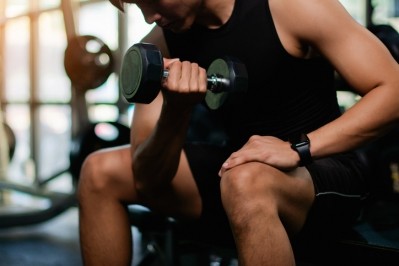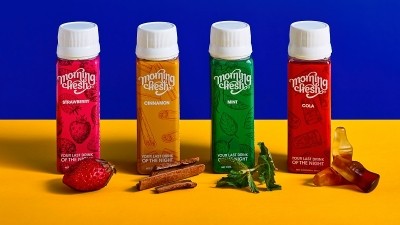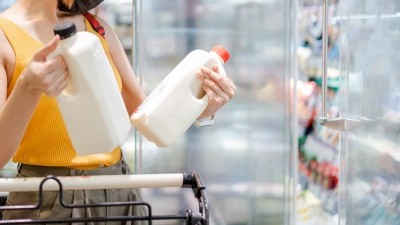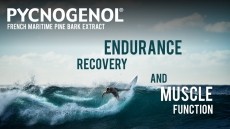Growth Asia Summit 2023
Kick out the cheats: MuscleBlaze gains 10% market share a year after launching whey protein test kits
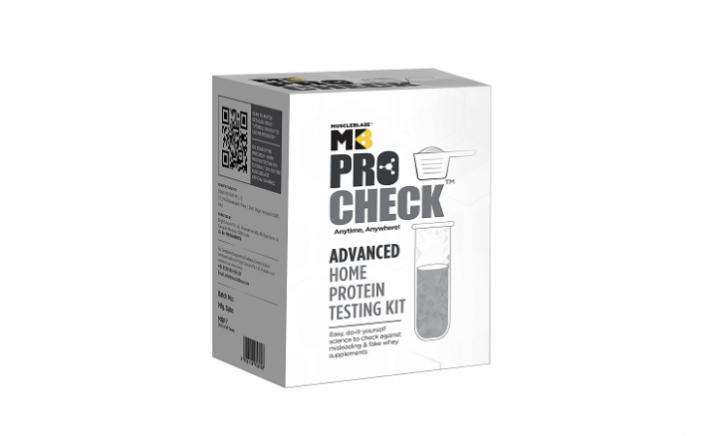
The company managed to do so after launching its test kit known as MB ProCheck last year, said senior vice president Kaustuv Paliwal during his presentation at the Growth Asia Summit 2023.
He was speaking on the topic “Overcoming adulteration: How MuscleBlaze maximised growth potential by democratising protein testing”.
The test could be performed at home, saving consumers from the hassle of sending the products for a laboratory test.
Consumers will need to pour 10ml of the protein shake that they want to test into the test kit solution. After shaking the mixture for 10 seconds, curdling will occur if whey protein is present.
The greater the number of curds formed, the higher the percentage of whey protein present. Likewise, no curdling will be seen if whey protein is absent.
The test kit became a talking point among fitness Youtubers and influencers after it was launched in India, and even offline retailers are using it to test the authenticity of the products that they are selling, according to Paliwal.
“The sales ranking of companies selling fakes on Amazon India started to slip and the word-of-mouth against brands which were cheating was strong.
“Surprisingly, we received exceptionally good feedback of our test kits from the offline stores, because apparently, they are also getting stocks that they didn’t know are fake, and so they used our kits to check if their stocks are authentic.”
In the past year, the test kit has helped the company achieved over 10 per cent market share gain, as consumers could now identify and ditch the fake protein products.
“What happened after all of this was that our market share had increased by more than 10 per cent, which is a very attractive figure, since we have been in the market for the last 10 years.”
Today, the company enjoys about 55 per cent market share in the direct-to-consumer (D2C) space and about 35 per cent share on Amazon India.
Some of its products include mass gainers that help bodybuilders gain muscle mass, multivitamins, and omega-3.
The company plans to develop a test kit to check for creatine concentrate as its next step, as the consumption of the ingredient has tripled in the past one to two years.
The path in finding a breakthrough
MuscleBlaze, which has been selling sports nutrition products in India for the past decade, is considered a mature player in the category and has been finding it challenging to achieve a breakthrough in market share.
Paliwal said that the company has tried to demonstrate the authenticity of its protein products through accreditations from third parties and industry awards.
Still, it struggled to attract more users.
“Despite the accreditations, we were still struggling to gain market share."
He pointed out that this was because fake and imitated goods were rampant in India’s protein market, and this has affected the company from gaining further market share.
The fake products continue to exist mainly because of the huge price disparity between the authentic and fake products.
According to Paliwal, fake protein products are about 30 to 50 per cent cheaper than the authentic ones, which is why these products have managed to thrive and even take away market share from the authentic players.
Weak regulatory enforcement is another reason undermining the more expensive but authentic products.
“There is weak regulatory enforcement; although the regulatory requirements are high. The problem is that for a country as large as India, it is almost impossible for the regulator to cover the ground and implement the rules that they already have,” he said.
Consumers, in addition, are not as knowledgeable in identifying a fake product.
Prior to developing the test kit, the main way in identifying an authentic product is via professional laboratory tests, which could be costly.
“The cost of testing the protein product in the lab is almost equivalent to the cost of the protein itself, and so it did not make sense for any consumer to invest in doing this,” said Paliwal, adding that this was why the company decided to develop its own test kit for home use.

